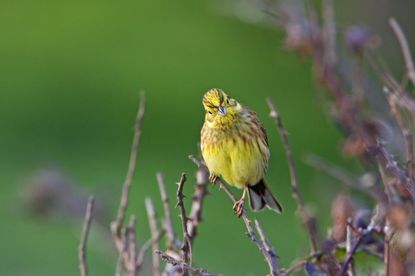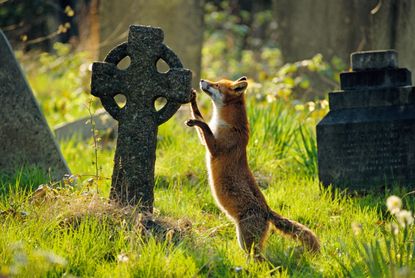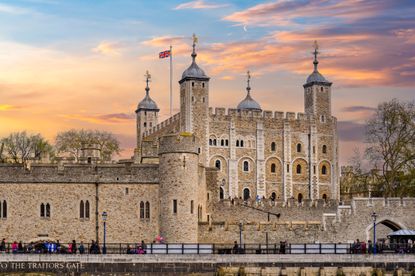Nature
-
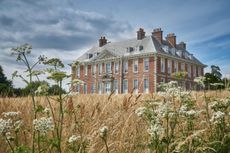
The 'greatest battle for 300 years': England's great estates face up to a green future
The climate crisis will affect us all. All over Britain, major landowners are stepping up to tackle a warming world and biodiversity loss.
By Jane Wheatley Published
-

'He unleashed a series of war cries, then intercepted the vole mid-air': There's nothing remotely common about the common kestrel
Known in Orkney as ‘moosie-haak’, kestrels are fierce hunters but have seriously declined and are now an amber-listed species.
By Mark Cocker Published
-

The truth about P.G. Wodehouse: Robert Daws on playing England's greatest comic writer
The actor Robert Daws starred alongside Stephen Fry and Hugh Laurie in Jeeves and Wooster back in the 1990s, and the work of P.G. Wodehouse has been part of his decades-long career ever since. He joined the Country Life Podcast.
By Toby Keel Published
-
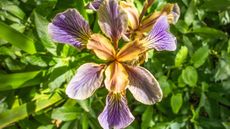
Don't judge a plant by its smell: Why 'the little stinkers of the natural world' are just doing their job
Reminiscent of love and with an unmistakable odour of death, the little stinkers of the natural world might incite repulsion, but they are only doing their job, pleads Ian Morton
By Ian Morton Published
-

Puffins and shearwaters, skuas and terns, gannets and gulls and guillemots and wings, these are a few of our favourite things (seabirds)
From a heroic long-distance swimmer to a producer of spectacularly eerie sound effects, the seabirds seen swooping and diving over British waters have all manner of singular skills.
By John Lewis-Stempel Published
-
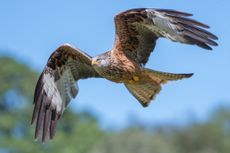
The red kite is a soaraway success story, having escaped extinction to become a familiar sight in our skies again
Unhurried in flight and with a sideline in stolen goods, the handsome red kite is the gentleman thief of the raptor world, writes Mark Cocker.
By Mark Cocker Published
-
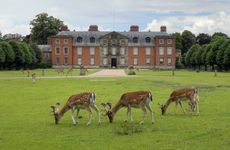
‘This isn't just silver — it's a story of a man who fell in love with a woman who society deemed unworthy': The large silver sculpture of rutting stags that scandalised Victorian society
George Harry Grey, the 7th Earl of Stamford, was shunned when he married a circus performer. This sculpture was his way of showing the world that he was a fighter — and it's now been acquired by the National Trust.
By Annunciata Elwes Published
-

What it's like to come face-to-face with a great white shark, with Dan Abbott of Netflix's All The Sharks
The wildlife cinematographer Dan Abbott joined James Fisher on the Country Life Podcast.
By Toby Keel Last updated
-
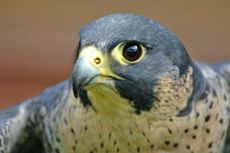
Peregrine falcons went to the edge of extinction in the 1960s — today, there are more of them than at any time since the Middle Ages
In the latest instalment of Mark Cocker's 'Winging it' column, he looks at the peregrine, a bird of prey with astonishing speed and super strength.
By Mark Cocker Published
-
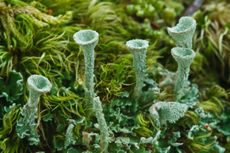
I lichen the look of you: A rare lichen-covered fingerpost that's been frozen in time and donated to the Natural History Museum
A fingerpost, covered in 12 different species of lichen, has been donated to the Natural History Museum by Exmoor National Park — but they had some trouble getting it there.
By Annunciata Elwes Published
-

Marcus Janssen: The man behind Schöffel on Chelsea Lifejackets, bagging a 'MacNab' and recognising the best of the British countryside
Marcus Janssen of Schöffel joins the Country Life podcast.
By James Fisher Published
-
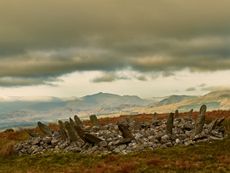
Beyond Stonehenge: The ancient moorland megaliths and grand stone rings that you can enjoy without the tourist hordes
With their potent blend of wild looks and mystery, Britain’s ancient sites have an enduring magnetism — and there are far more of them than you might imagine.
By Tom Howells Published
-
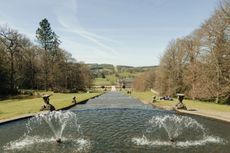
Chatsworth's winning £4 million Lottery ticket means it can restore beloved water feature
The Chatsworth House Trust will use the money from The National Lottery Heritage Fund to restore their Cascade — beloved by Alan Titchmarsh.
By Lotte Brundle Published
-
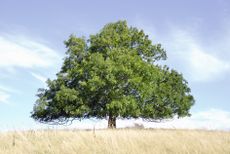
Hope from the ashes: This new generation of ash trees is more resistant to dieback
When ash dieback first arrived in Britain, in 2012, an emergency COBRA meeting was formed. The disease has since spread rampantly across the countryside, but there is still hope.
By Annunciata Elwes Last updated
-

Listen up puffins, peregrines and seal pups — Big Brother is watching you
The Wildlife Trusts have installed more than 25 video cameras around the country that live stream activity from barn owl nests to popular puffin sites.
By Annunciata Elwes Published
-

The golden eagle: One of the Great British public's favourite birds of prey — but devilishly tricky to identify
We are often so keen to encounter this animal that ambition overrides the accuracy of our observations, writes Mark Cocker.
By Mark Cocker Published
-
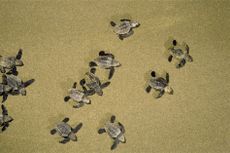
From turtles to pink sea fans: Why Mediterranean marine life is drifting into British waters
Both leatherback sea turtles and the soft corrals’ presence near our shores coincides with our warming seas, Lotte Brundle writes.
By Lotte Brundle Published
-
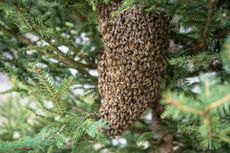
It's a cruel summer to be a bee with up to 80% of swarms dying if they cannot find a safe place to settle — but here is how you can help
Currently, swarms of bees are taking flight to search for new homes and up to 80% of these swarms will perish if they cannot find a safe place to settle, but we can all help, says the BBKA.
By Annunciata Elwes Published
-
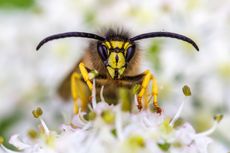
'It’s not ironic that I really like wasps and that they nearly killed me. It’s simply a coincidence': What to do if you're stung by a wasp
After a close encounter with some wasps put him in hospital, William Kendall sought an unlikely remedy...
By William Kendall Published
-
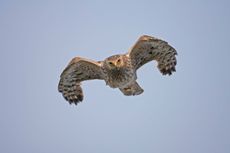
Hen harriers: The 'marvels of evolutionary adaptation' that are 'ballet and theatre and poetry inscribed on air'
The hen harrier is one of the most glorious birds of prey in Britain — yet it provokes fierce debate. Mark Cocker unpicks why this breed is among the most controversial of all British birds.
By Mark Cocker Published
-

Steve Backshall on sharks, quicksand, and getting his fingertips eaten by piranhas
The adventurer, broadcaster, scientist and writer Steve Backshall joins the Country Life podcast.
By Toby Keel Published
